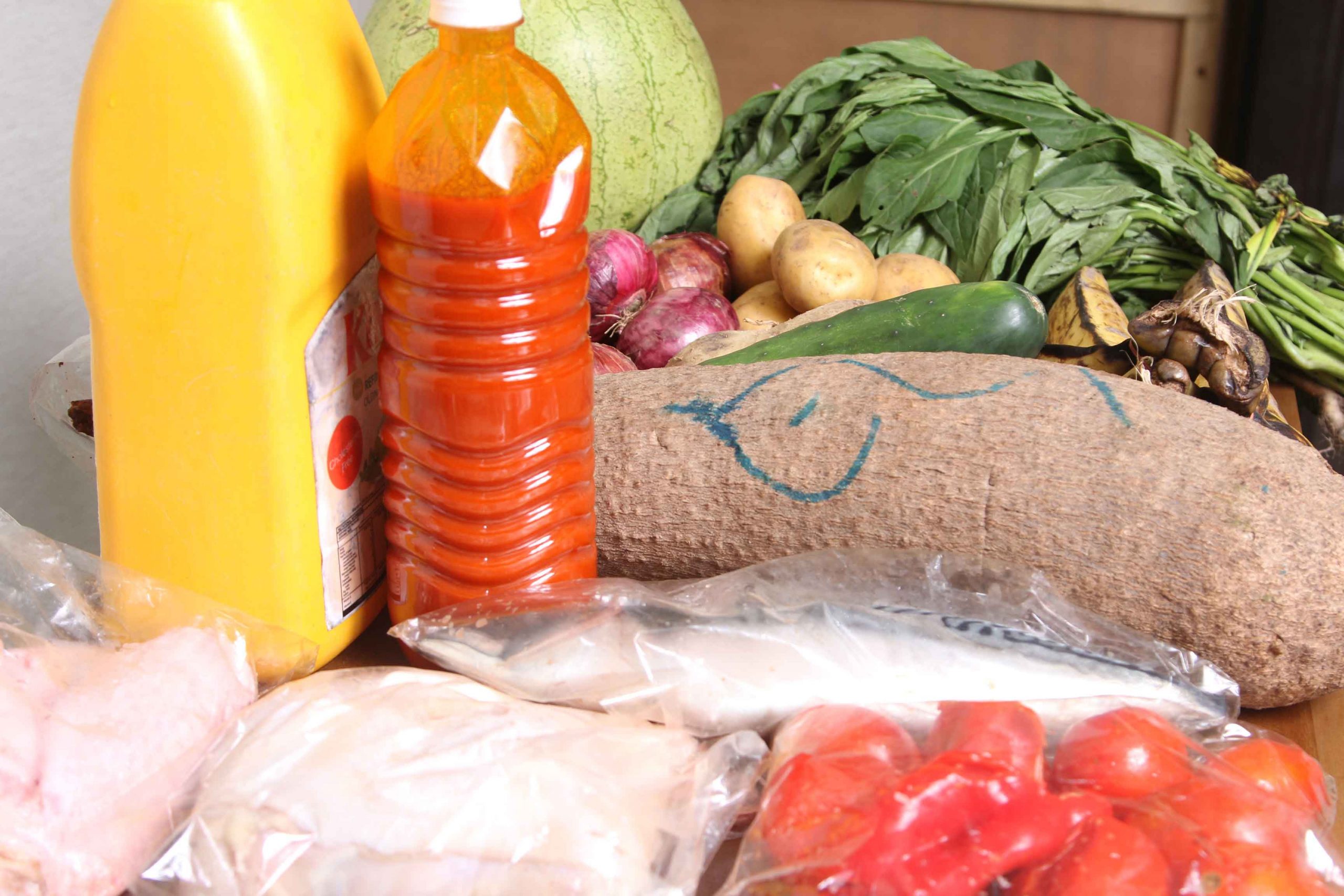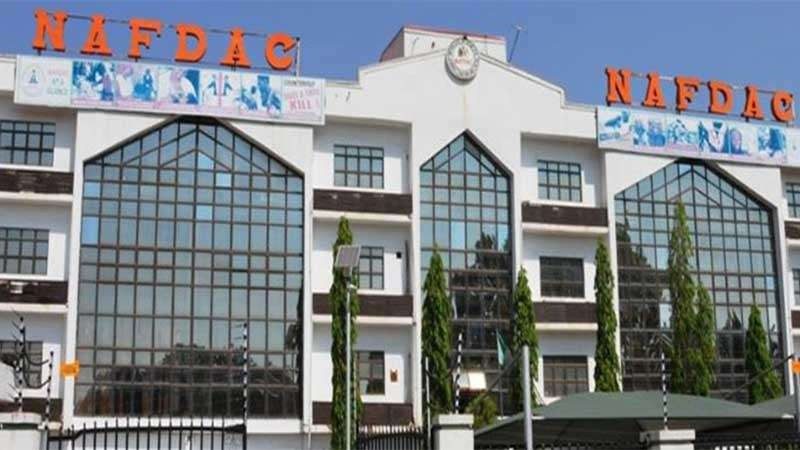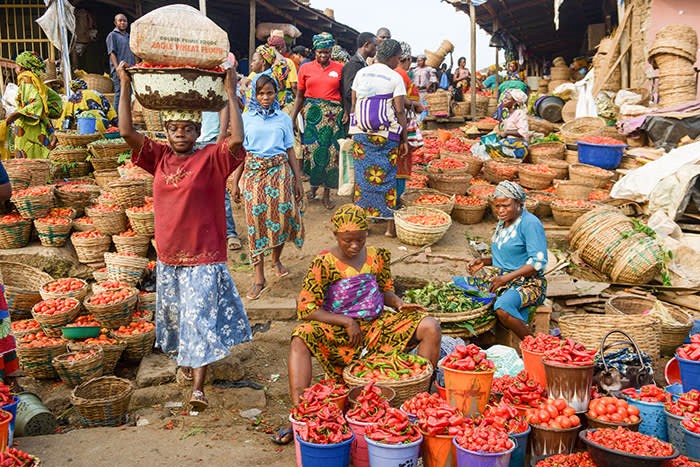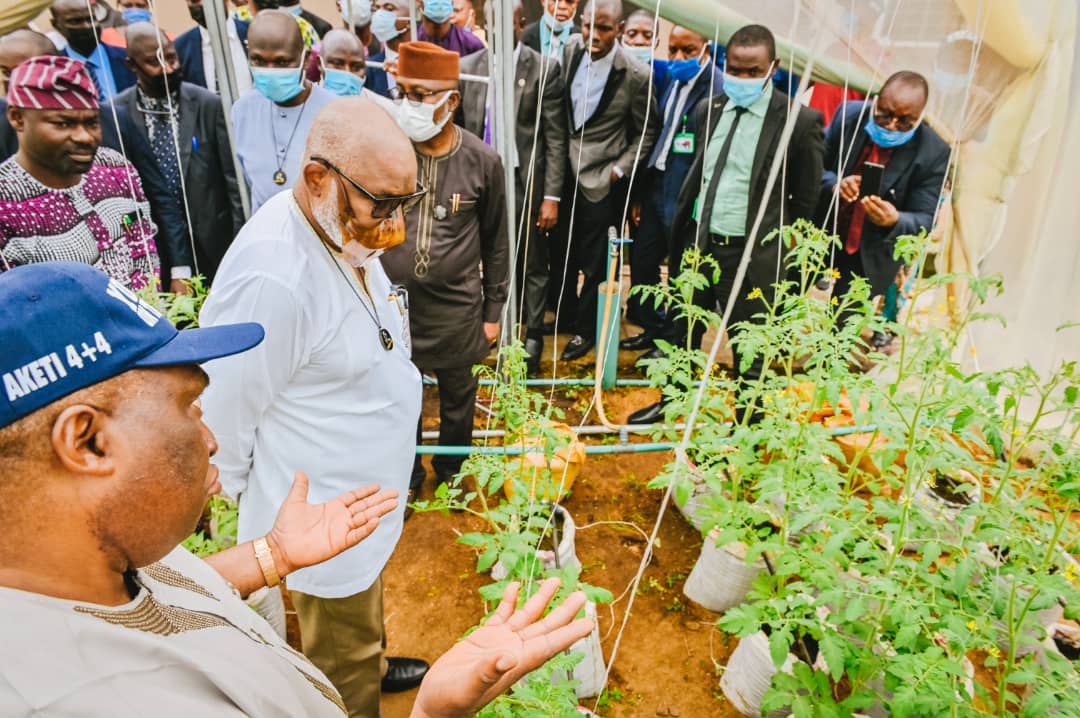By Dele Sobowale
“The stomach is a rascal. No matter how well you fed it yesterday, it wants more today and tomorrow.” Leo Tolstoy, 1828-1910, Russian author.
Remove the freeloaders in Aso Rock, the Governors’ Mansions, the ex-MD of Mortgage Bank now on the run, “Wharf Rats” who “chopped” NPA raw, and others well-connected to various corridors of power, there are 200 million rascals inside Fellow Nigerians walking around today. Never in my life have so many family disputes arisen over feeding allowance given by husbands to wives as now. More trousers have been grabbed, more shirts torn by “better halves” asking rudely, the poor man who wants to flee, “where are you going? What do you want me to do with this small amount of money”? That “small amount of money” was a windfall in early 2020; when she knelt down and thanked him.
Today, he is an irresponsible man who does not know what is going on in the market. There are millions of us all over Nigeria who must sneak out of the house after dropping the “chicken feed” on her dressing table and run as fast as our legs can carry us. I can’t run. So, I plan my exit carefully. I won’t say how.
But, jokes apart; the Nigerian household is now a battle field pitting fathers against mothers and the kids; and everyone against everybody else.
FOLLOW ME TO THE MARKET – Azu, VANGUARD columnist.
Azu, sublime essayist, could not have known how deeply he touched the aching hearts of millions of Nigerians when he wrote a column with that title a few weeks ago. As I was reading it, a couple was in the midst of a real fight over feeding allowance. Their own was the third in the neighbourhood that day. What made their own most remarkable was the fact that they were the model young couple we have. They never quarrel, openly at least, and were always holding hands. But, on this evil day, three “rascals” intervened. Their three school age kids were given lunch money by Daddy – as usual. But, the food seller at the school had increased the price by fifty per cent as they went on short vacation. He also left N10 for pure water for each child. The money Daddy left was insufficient for lunch. Daddy meanwhile had lost his job and was managing his severance pay. The wife, a trader, had no money that day. Bedlam.
Azu was lucky or smart not to take up the challenge to follow his wife to the market. He would have regretted doing so. I decided on one of my days on the run to go to Itafaji Market in Lagos Island; hoping to prove my wife wrong that food prices had gone haywire. Clutching N5000 in my hand, I approached a butcher with all the confidence of someone ready to clear the shop.
“This amount won’t buy much”, he announced with the solemnity of a hanging Justice of the High Court.
“Just sell to me N5,000 meat, I don’t need it for a party”. I threw the five N1000 bills at him. It was a blunder. He took the money, took his knife and sliced a small piece of meat and started to wrap it.
“Eh! Wait a minute, I said N5,000 not two”. It was the woman standing impatiently behind me who answered me. “Baba, take it; he even sold you more meat because you are old.”
The butcher called to another one four stalls away. “Lasisi, see the meat I sold to this Baba for N5000 and he is still complaining.”
More than a hundred customers’ eyes, darting contempt, turned in my direction at the same time. I grabbed the meat; ran into the traffic into a Marwa (or Keke) which fortunately was passing by.
“Where are you going Baba?”
“Anywhere, just get me out of here.”
We departed as one woman was telling everybody, “These senile old men don’t read newspapers; otherwise he would not be talking like that.”
I was too humiliated to disclaim that half-defamation. I am probably senile. But, I read newspapers. In fact, that was why I was in the market – to find out for myself and our readers the trend in food prices. I learnt something.
It was then that I understood the volcanic rumbling in my house about food prices. I am fighting my own battle at home now. But, it is more brutal elsewhere in various households. Surprisingly, it is worst among families living on farming. A call from one of the North West states illustrates their predicament – which will have negative impact on food prices nationwide as we move into the year.
PLANTING AND HARVESTING FOR BANDITS
“Inflation reverses 19-month trend, drops marginally to 18.12%” – Report.
First, there is a need to explain to our readers, who might not be economists, that inflation dropping to 18.12% does not mean that prices are no longer rising. It is the speed that has been reduced – just as a car formerly moving at 120kph slowing to 100kph is still moving. Aggregate price increase will stop when inflation is zero per cent. They will go down when inflation is minus.
Second, slow down of food price acceleration contributed to this trend; and it is normal. Early harvests increase food supply every year and some prices decline. Obviously, the harvest is so poor, food prices are still escalating. Here is why.
Some bandit groups now focus on food if the inhabitants in a community are too poor to pay ransom. They wait for the farmers to harvest or force them to harvest at gun point; pack the proceeds in sacks; mount their motor cycles and ride off. The farmers, with lives spared and women not raped, don’t need anybody to tell them to stop going to farm.
Women produce close to 70 per cent of the food we eat in Nigeria. They are the most vulnerable to attack. Right now, all across Nigeria, rural women are in revolt. Increasingly, they are not prepared to risk their lives to provide food for the rest of us. Thus, irrespective of the quantity of food produced this year, only a fraction of it will eventually reach people in the cities and towns of Nigeria.
Post harvest waste had been estimated at close to 30 per cent of the food produced in Nigeria for decades. Despite promises made, governments have failed to establish food silos required to reduce post harvest food waste. This year, pre-harvest waste will increase the quantity of locally produced food which will not reach the table – especially in urban areas.
Right now, we are experiencing attacks on our food security that are totally alien to us. Since 2015, Fulani herdsmen were allowed to ravage farms, with impunity, nationwide, by a myopic Federal government whose leaders could not predict the consequences of their collusion with the Mayetti Allah Cattle Breeders Association of Nigeria, MACBAN. They were allowed to roam around the country with AK-47s to terrorise farmers. The result is what we now observe as relentless food price inflation.
At about the same time, bandits were constantly rampaging all over Kaduna, Katsina and Zamfara – three key agricultural states. Before the 2019 elections, the Governors of Katsina and Zamfara were already paying bandits to allow their people to farm. The hoodlums took the money and still went ahead to annihilate thousands of people in rural Katsina. Virtually every person killed was a farmer – who has not been replaced; and will not soon be replaced. Too many hands are being disengaged from the farms.
Meanwhile, the population kept on increasing by three per cent each year – bringing nearly 6 million more mouths to feed. Again, it never occurred to the FG that you cannot cuddle MACBAN, because one of you is their Life Patron; allow herdsmen to destroy farms with impunity; treat the menace of bandits in farm states with benign neglect and avoid mass starvation at the same time. Food price escalation in May portends serious disaster later on. You can’t harvest what has not been planted; and you can’t bring home harvest left in the field to rot – out of fear of bandits. These are unprecedented experiences in our history.
WATER IS LIFE OR DEATH –PURE WATER RIPS OUR POCKETS
“Water is life.” Thales, 624/3-548/545
Thales was regarded by Aristotle as the first of the Greek philosophers. He left many theories behind which still help us to understand nature better. Among farmers, nutritionist and Abami Eda, Fela Anikulapo, the one that matters was his declaration over 500 years before Christ was born – “Water is life.” Remove water; and all living things die. We need water to plant the seeds, water to grow the food, water to process the raw materials to become food; and water to wash down the food after eating. Nigerian governments, since independence, had failed to provide running water in our majour cities; the rural areas never had good potable water. PURE WATER became a packaged product in the 1980s – about the time public water provision stopped. I grew up in a house where public water was running freely. And, the water supply continued until 1995 in Lagos Island. Then it stopped. It was good drinkable water. Today, no building in Lagos Island enjoys public water. There is either a borehole in the building or the occupants depend on Mai Ruwa to supply water – not good for drinking.
Until this year, Lagosians, like other Nigerians lived on cheap pure water – retailing for N5 per sachet. The pandemic and the shut down of many pure water producing companies drove the price to N10 late last year. People grumbled; but, they continued to drink. There is no alternative, TINA, to pure water.
In mid-May, shortly after the Holy Ramadan, the price went up to N50 for 3 sachets at room temperature; N20 per sachet if cooled. That 100 per cent price increase has now turned water for cooking and drinking to something deadly for millions of Fellow Nigerians. The poor fellow, who was under vicious verbal attack by the wife, has a problem which can only be solved by having more money to spend. Until now, N300 was sufficient to give the kids water at school. Now he must find N1000 per month. Lunch set him back N6000 per month before; now he must find N9000 to stop three rascals from rumbling and for learning to take place. Nobody learns anything on an empty stomach. Even a great conqueror, Napoleon Bonaparte, 1769-1821, was forced to admit that “An army marches on its stomach.” Certainly, millions of Nigerians will stop marching this year – if things continue like this.
INEVITABLE FUEL PRICE INCREASE – LAST STRAW?
“NGF mulls N360/litre fuel price.” News Report, May 20, 2021.
Governor El-Rufai was reported to be speaking for the Nigeria’s Governors Forum, NGF, who had established a body to look into fuel prices. The committee had recommended N405/litre as new price. But, El-Rufai thinks they might get the NLC to accept N380/litre. That is 135 per cent increase over the pump price now. If that occurs, expect food prices to jump by at least 100 per cent over whatever you are paying now.
Nigerians might drink muddy water as we reach more into this NEXT LEVEL!










